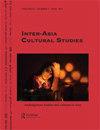香港:档案的未来
IF 0.4
4区 社会学
Q4 ANTHROPOLOGY
引用次数: 0
摘要
香港曾经是一个消失的城市(Abbas[1997] 2008),在那里变化是常态。然而,在过去十年里发生的前所未有的变化让这座城市感到震惊。没有人预料到文化工作者和教育工作者会因为出版政治上“不恰当”的内容而被拘留,比如流行歌曲和描绘羊被狼袭击的儿童书籍——暗指北京政府镇压民主活动人士;也没有人预料到《苹果日报》(Apple Daily)会戏剧性地停刊。这是一份直言不讳、支持民主的小报,在香港创刊26年来,从不犹豫地批评北京,或揭露当地的腐败案件。这一系列剧烈的变化促使香港人尽可能多地将每一件消失的东西存档。与此同时,人们正在离开,或者更准确地说,一直在离开这座被迫摆脱香港特色的城市。截至2021年7月,赤腊角国际机场离境大厅挤满了乘客和他们的家人,他们泪流满面;航班上挤满了绝望的旅客,他们要去英国,利用他们最后的机会离开移民规则(LOTR)。当然,一个人不可能收拾好心爱的城市,搬到其他地方去安家,也不是每个人都能负担得起。海滩和港口不能搬迁;本地种植的蔬菜和鸡不能迁移到其他地方,因为香港的土壤和水不能跨越国界。与此同时,那些决定留下来的人必须做好准备,迎接一个不断快速变化的香港,它将彻底消除香港原有的独特性。在食物方面,由于香港多产农田的减少,剩余的香港人越来越难以负担本地种植的农产品,这一度引发了变革性的规划实践,这些规划实践似乎带来了充满希望的、可再生的政治,并为社会生态可持续发展的香港带来了更多前景(Huang 2021)。现有的文学和大众媒体一直关注香港人如何将他们的食谱和烹饪风格带到他们的第二故乡,如温哥华、多伦多、伦敦、台北等地。其中,茶餐厅(cha chaan teng)是香港风格的咖啡馆,提供价格实惠的混合食物,已被公认为最知名的社交场所之一,海外香港人可以通过这里找回和保留香港的日常味道。例如,港式奶茶的成功消费和传承证明了香港人在全球许多全球城市的存在(Mak 2021)。香港的遗产从来不只是传统或真实,而是(重新)发明。旧香港本文章由计算机程序翻译,如有差异,请以英文原文为准。
Hong Kong: a future in archives
Hong Kong used to be a city of disappearance (Abbas [1997] 2008), where change was the norm. Yet, unprecedented changes that happened just within the past decade left the city in shock. No one was expecting to see cultural workers and educators being put in custody for publishing politically “inappropriate” contents, examples including popular songs and children’s books that depict sheep being attacked by wolves—an allusion to the state crackdown on prodemocracy activists in the city; nor did anyone expect the dramatic closure of Apple Daily, an outspoken, pro-democracy tabloid that never hesitated to criticize Beijing or expose local cases of corruption for its 26-year-long life in Hong Kong. The series of drastic changes have pushed Hong Kongers to archive every disappearing thing as much as possible. Meanwhile, people are leaving or, more precisely, have been leaving the city that is being forced to shed its characters of Hong Kong-ness. As of July of 2021, the departure hall of Chek Lap Kok International Airport was crowded with passengers and their families in tears; flights were packed with desperate travelers leaving for the UK to make use of their last chance granted by Leave Outside the Immigration Rules (LOTR). It is certainly impossible for one to pack up a beloved city and leave for a new home elsewhere and not everyone can afford to leave. The beaches and harbors cannot be relocated; the local-grown vegetables and chickens cannot be relocated elsewhere as the soil and water of Hong Kong cannot be brought across borders. At the same time, those who have decided to stay must prepare themselves for a continuously, rapidly changing Hong Kong that totally erases its existing uniqueness as Hong Kong. In terms of food, it has become increasingly difficult for the remaining Hong Kongers to afford local-grown produce due to decreasing productive farmlands in Hong Kong, that once gave rise to transformative planning practices that were seemingly bringing hopeful, regenerative politics and more prospects for a socio-ecologically sustainable Hong Kong (Huang 2021). Existing literature and popular media have been paying attention on how Hong Kongers have brought their recipes and cuisine styles with them to their second home locations such as Vancouver, Toronto, London, Taipei, etc. Among others, cha chaan teng—Hong Kong style cafes that serve affordable, hybrid forms of food—has been recognized as one of the most well-known social spaces through which overseas Hong Kongers would retrieve and retain the daily taste of Hong Kong. For instance, the successful consumption and heritagization of Hong Kong style milk tea testified to Hong Kongers’ presence in many global cities around the world (Mak 2021). Heritage in Hong Kong has never been just about tradition or authenticity but (re)invention. Old Hong Kong has
求助全文
通过发布文献求助,成功后即可免费获取论文全文。
去求助
来源期刊

Inter-Asia Cultural Studies
Multiple-
CiteScore
0.90
自引率
20.00%
发文量
22
期刊介绍:
The cultural question is among the most important yet difficult subjects facing inter-Asia today. Throughout the 20th century, worldwide competition over capital, colonial history, and the Cold War has jeopardized interactions among cultures. Globalization of technology, regionalization of economy and the end of the Cold War have opened up a unique opportunity for cultural exchanges to take place. In response to global cultural changes, cultural studies has emerged internationally as an energetic field of scholarship. Inter-Asia Cultural Studies gives a long overdue voice, throughout the global intellectual community, to those concerned with inter-Asia processes.
 求助内容:
求助内容: 应助结果提醒方式:
应助结果提醒方式:


